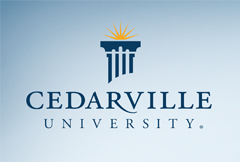Keywords
Human personhood, ethics, Kantian Ethics
Abstract
What sets humans apart from all other creatures? If you were to approach a biological Homo sapiens with the question “what makes you human?” how would they respond? Do we have value simply as humans, or are we nothing more than what we offer the world? Philosophers have discussed these questions for centuries and it seems that there have been a few concrete conclusions. These conclusions depend on how one views ethical theory.
Ethical theory and personhood go hand-in-hand. Immanuel Kant, one of the greatest philosophers of the 18th Century, developed his moral philosophy in what is now known as Kantian Ethics. Using this viewpoint, we can argue that Kant’s opinion about personhood is more in line with an ontological perspective, based on three things: his idea of reason and human knowledge, an emphasis on moral duty, and the Humanity Formula.
DOI
10.15385/jce.2008.8.2.1
Recommended Citation
Nelson, Jennifer
(2009)
"Human Personhood from a Kantian Perspective,"
CedarEthics: A Journal of Critical Thinking in Bioethics: Vol. 8:
No.
2, Article 1.
DOI: 10.15385/jce.2008.8.2.1
Available at:
https://digitalcommons.cedarville.edu/cedarethics/vol8/iss2/1
Creative Commons License

This work is licensed under a Creative Commons Attribution-Noncommercial-No Derivative Works 3.0 License.
Disclaimer
The CedarCommons repository provides a publication platform for fully open access journals, which means that all articles are available on the Internet to all users immediately upon publication. However, the opinions and sentiments expressed by the authors of articles published in our journals do not necessarily indicate the endorsement or reflect the views of Digital Services, the Centennial Library, or Cedarville University and its employees. The authors are solely responsible for the content of their work. Please address questions to the Digital Services staff.
Copyright
© 2008 Jennifer Nelson. All rights reserved.
